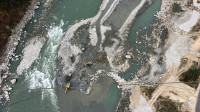National
Nepal Southern Agricultural Science and Technology Park inaugurated
The park aims to enhance the production of hybrid rice in Nepal and strengthen cooperation in rice cultivation, livestock and fish farming, and greenhouse vegetable production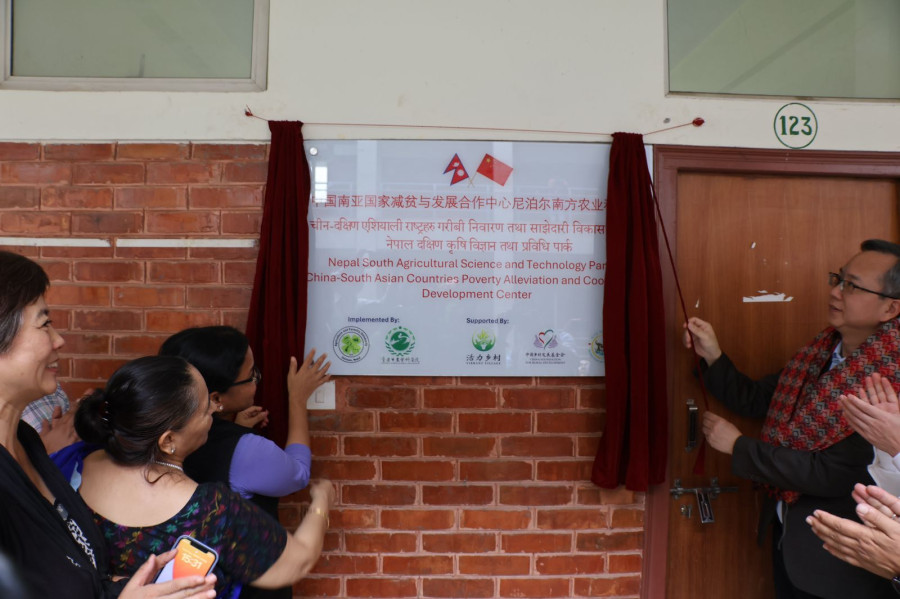
Post Report
Nepal Southern Agricultural Science and Technology Park was inaugurated at the Agriculture and Forestry University in Chitwan amid a function on Tuesday.
The park was developed with the support of China-South Asian Countries Poverty Alleviation and Cooperative Development Center.
Mayor of Bharatpur Metropolis Renu Dahal along with Chinese Ambassador Chen Song, Deputy Director of the Chongqing Agriculture and Rural Committee Wang Shijie, and Academic Director of Chitwan Agriculture and Forestry University Sharda Thapaliya jointly inaugurated the park.
At the inauguration ceremony, Dahal, mayor of Bharatpur Metropolitan City, expressed her deep gratitude to the Chinese Embassy in Nepal for supporting the visit of Chongqing’s agricultural expert delegation to Chitwan.
She thanked them for collaborating with the agricultural experts from Chitwan Agriculture and Forestry University to conduct scientific research and experiments aimed at improving rice production and yield in Nepal.
She also extended her thanks to the Chongqing Municipal Government and Agricultural Committee for providing technical and financial support, as well as to the Nepal Office of the China Foundation for Rural Development, an NGO from China, for its role in managing the Nepal Southern Agricultural Science and Technology Park project.
Over the next five years, she hopes that these efforts will bring the dream to fruition and further promote the cooperation and development of the Belt and Road Initiative between China and Nepal.
Prof Dr Shardha Thapaliya, the academic director of Chitwan Agriculture and Forestry University, Nepal, expressed her gratitude to the Chinese government for launching the Nepal Southern Agricultural Science and Technology Park of China-South Asian Countries Poverty Alleviation and Cooperative Development Center in Chitwan.
“As the largest and oldest agriculture and forestry university in Nepal, it is a great honour to participate in and support the Southern Agricultural Science and Technology Park project, working alongside Chinese agricultural experts to implement hybrid rice cultivation in Nepal,” Thapaliya said.
She emphasised that with the support of the Chinese Embassy in Nepal and the Bharatpur municipal government, to collaborate with Chinese rice experts in scientific research, enhance rice production in Nepal, and benefit the people of Nepal, ensuring that the support provided by the Chinese government won’t go in vain.
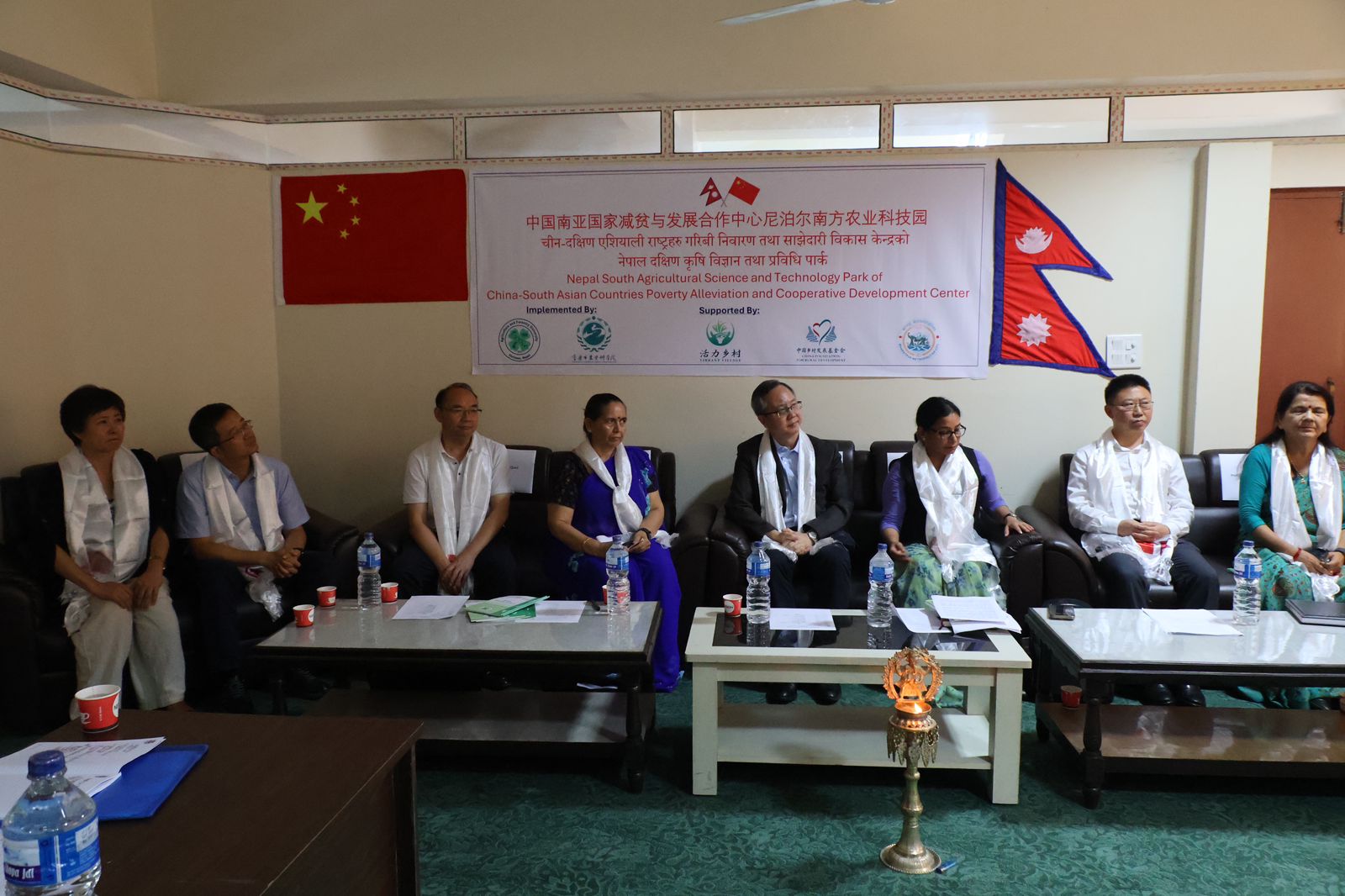
Wang Shijie, deputy director of the Chongqing Agriculture and Rural Committee, on behalf of the Chongqing Agricultural Committee, expressed gratitude to all the Chinese and Nepali agricultural scientists, experts, and leaders involved in the project, as well as to all the staff of the Nepal Office of the China Foundation for Rural Development, who will be responsible for executing and managing the project.
He noted that the launch of the “Vibrant Village” Southern Agricultural Science and Technology Park marks another action in Nepal under the “Light Up the Future” initiative by the China-South Asian Countries Poverty Alleviation and Cooperative Development Centre.
The Nepal Southern Agricultural Science and Technology Park (named the “China (Chongqing) - Nepal Hybrid Rice Science and Technology Park”) aims to enhance the production of hybrid rice in Nepal and strengthen cooperation in rice cultivation, livestock and fish farming, and greenhouse vegetable production.
In July 2023, Yuan Jiajun, Secretary of the Chongqing Municipal Committee, led a Chinese Communist Party delegation to visit Nepal, reaffirming Chongqing’s willingness to work with Nepal in areas such as poverty reduction, industrial development, cultural tourism, and education and training, thereby continuously enhancing mutual trust and friendship and injecting new momentum into the development of bilateral relations.
“The launch of the project today in the beautiful agricultural region of Chitwan, Nepal, represents a more solid step in China-Nepal agricultural cooperation,” he said. “Through five years of effort, we hope the project will bring a bountiful harvest to the local people of Nepal, with higher rice yields and better varieties, further solidifying the friendship between China and Nepal.”
Chen Song, the Chinese Ambassador to Nepal, conveyed his anticipation for the management of the project by the staff of the Nepal Office of the China Foundation for Rural Development.
“The launch of the Nepal Southern Agricultural Science and Technology Park under the China-South Asian Countries Poverty Alleviation and Cooperative Development Center is a concrete action in implementing the directives outlined in the report of the 20th National Congress of the Communist Party of China,” he said.
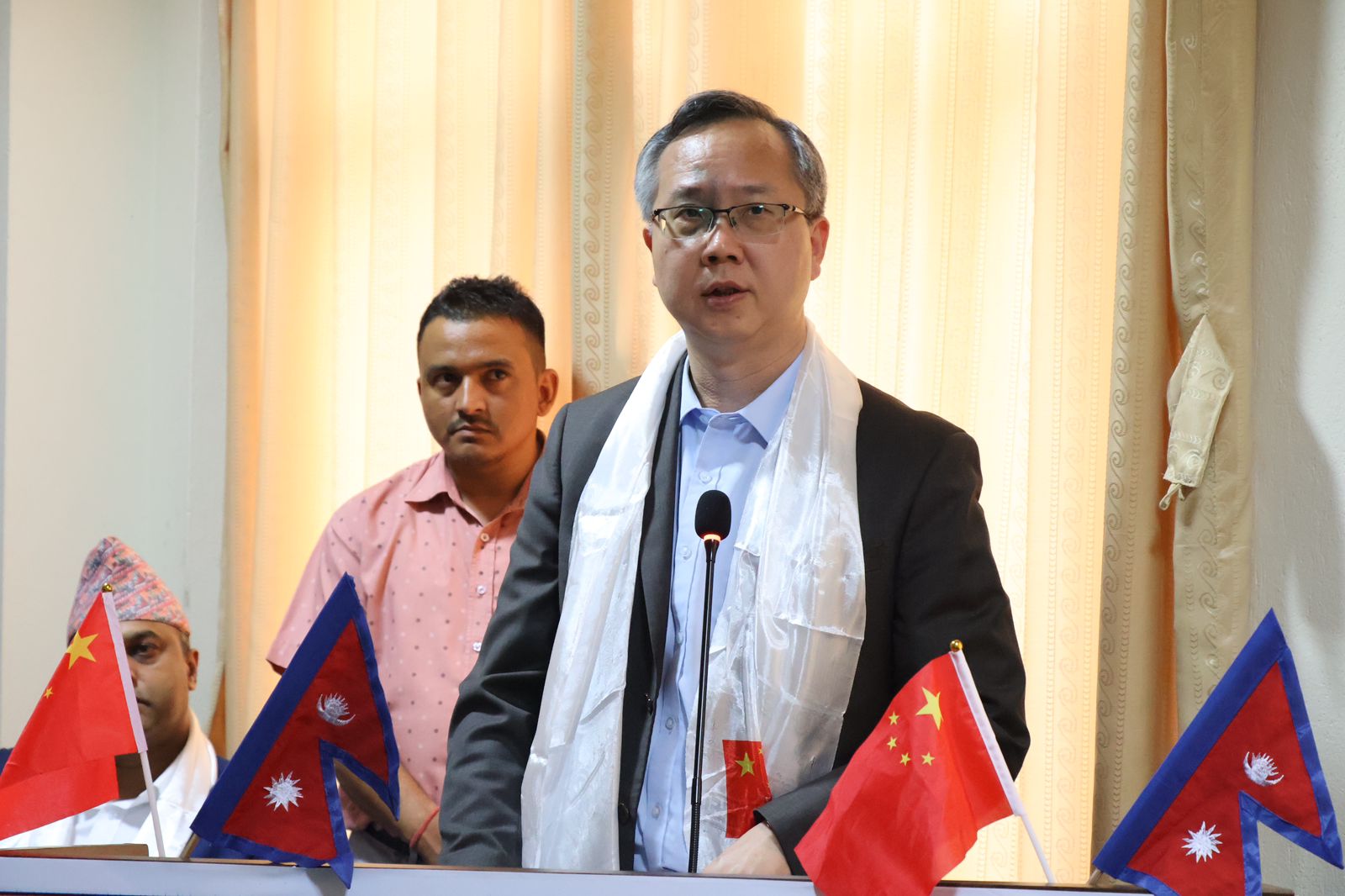
“The report emphasises “promoting high-level opening up, advancing the high-quality development of the Belt and Road Initiative, deeply participating in global industrial division and cooperation, and maintaining a diverse and stable international economic structure and trade relations”.
It also aligns with the consensus reached by the leaders of China and Nepal during President Xi Jinping’s visit to Nepal in 2019 to “promote exchanges and cooperation between the two countries and at the local level in trade, livelihood improvement, youth exchanges, and other areas, and to elevate bilateral relations to a new level, he said.
Ambassador Chen expressed his hope that, through the joint efforts of both China and Nepal over the next five years, Nepal’s rice production technology will be significantly enhanced, China-Nepal friendship will deepen further, and the people of Nepal will benefit from these efforts.
Zou Zhiqiang, director of the Nepal Office of the China Foundation for Rural Development, stated that as the only Chinese social organization in Nepal, it is a great honor to have the opportunity to participate in the aid work of the China-Nepal government project.
She expressed her gratitude for the trust placed in them by both China and Nepal and assured that they would live up to the expectations of all parties. She pledged to work diligently in providing services to all involved in the project, ensuring its successful implementation in Nepal, while also serving as a bridge of friendship between the Chinese and Nepali people.
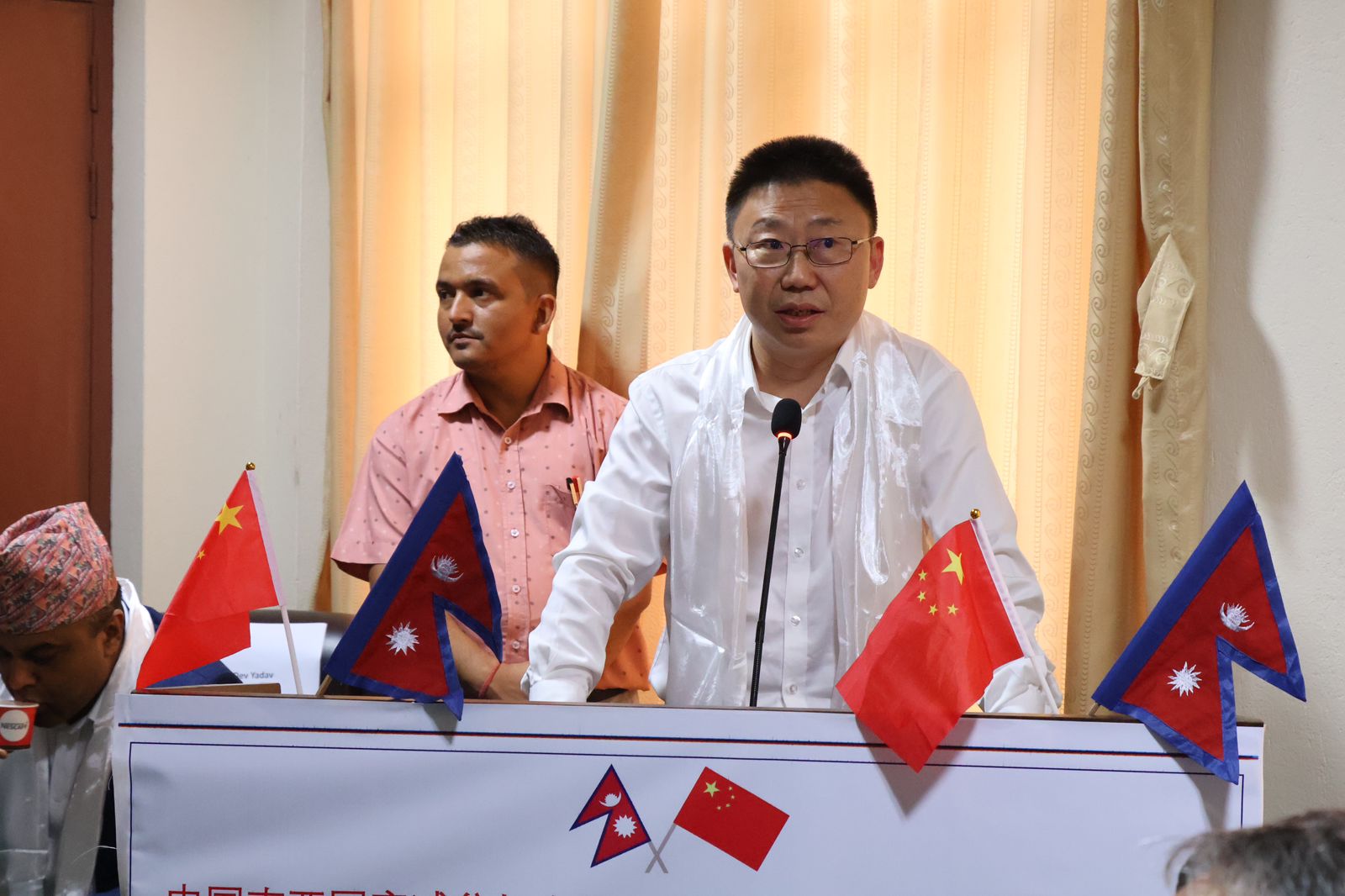
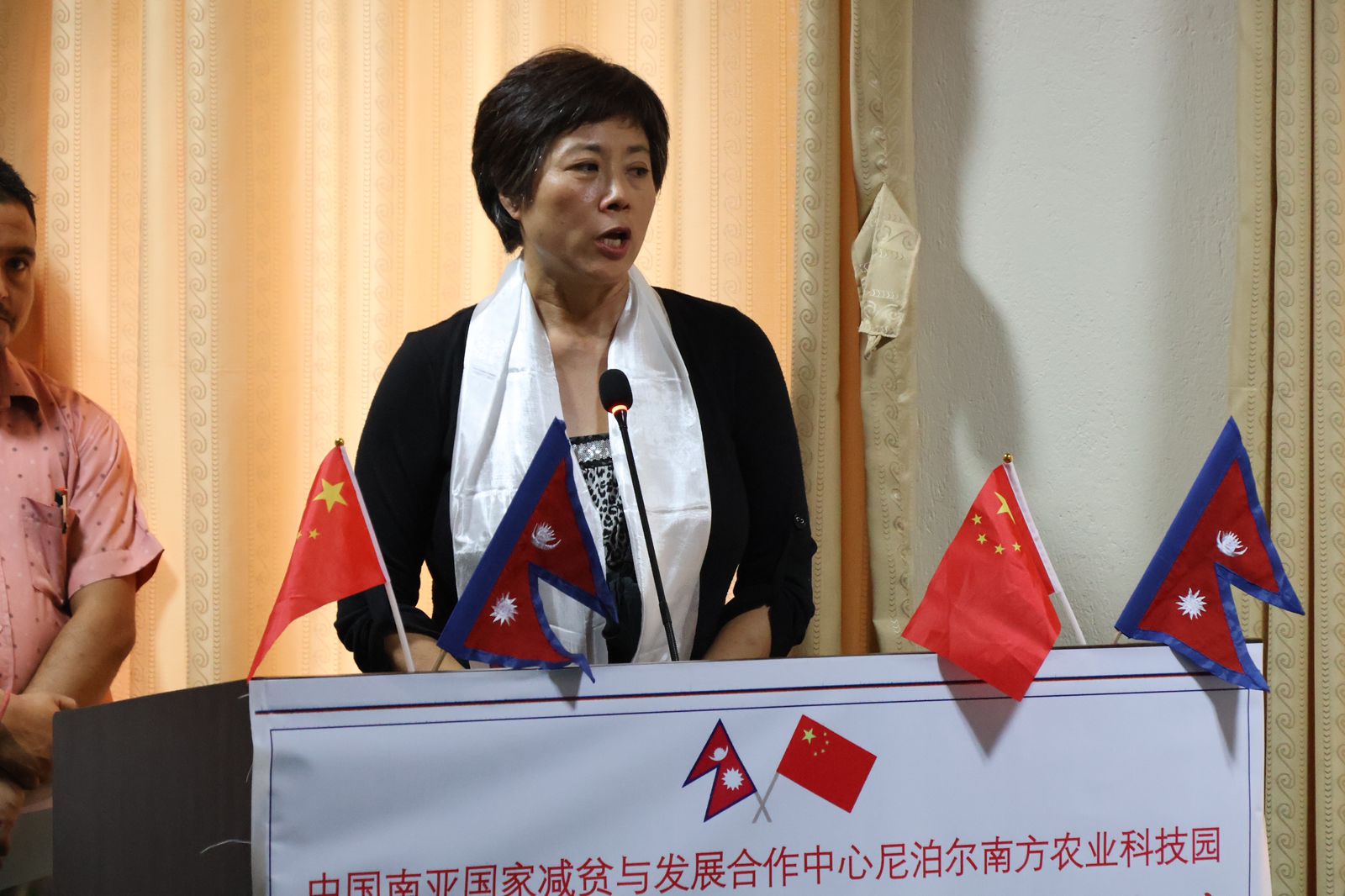




 10.17°C Kathmandu
10.17°C Kathmandu

